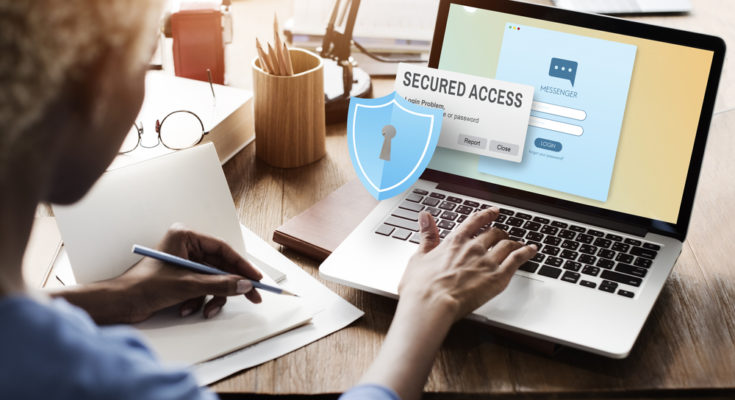Students at campuses across the country have a long checklist of preparations they need to get through to make a success of their studies. But unfortunately the security of their digital information is not normally on the list – until something goes wrong.
“Students prepare in various ways for tertiary study – by familiarising themselves with their timetable, getting to know the lay of the land around campuses, and getting to grips with the deadlines for assignments and tasks,” says Nola Payne, Head of Faculty: Information and Communication Technology at The Independent Institute of Education, SA’s largest and most accredited private higher education institution.
Payne says higher education students are almost always expected to submit their work as a printed, typed document and increasingly they are expected to upload digital versions to various systems. Assignments, reports and dissertations are routinely drafted in computer labs, campus libraries and Wi-Fi hotspots and most students need to work between these and home and perhaps even collaboratively with friends.
“But by using these public and multiple spaces, students are exposing themselves to various vulnerabilities which could affect their work,” she says.
“It is therefore important to highlight these digital areas of vulnerability, and advise students about how they can counteract the risks.”
Payne says that by adhering to the following guidelines, students can ensure they are not defencelessness against digital disasters.
- SAVE YOUR FILES
Sounds obvious, but when you are busy, you may be tempted to postpone and postpone until it’s too late.
“There are few things as disheartening as having spent hours working on an assignment only to lose it because you either did not haveauto save enabled or you did not save your work periodically,” says Payne.
“There are various events – such as power failures or computer viruses – which can corrupt files and cause a loss of data, so work on the assumption that you may at any stage be required to recover lost or corrupted files.”
- SAVE IN MORE THAN ONE SECURE PLACE – CAMPUS COMPUTER LAB DRIVES ARE NOT THE SOLUTION
Sometimes lecturers ask for your final submission of assignments to be saved to local servers so they have access to them for marking, notes Payne.
As student servers are stored externally from the local PC, your data will be more secure but also less portable. You will only have access to your data while you are a registered student. Even worse, and in line with the data retention policy of the institution, servers may well be “cleaned” each year or semester which means your data could be deleted when you least expect it.
“So do not store the only copy you have on this server. Always keep a backup copy of your submitted assignment on another form of storage,” says Payne.
- BE CAREFUL WITH FLASH DRIVES
As students often have to work in multiple places, many use flash drives to move data. But Payne says this is particularly risky when you have to insert it into a public computer or computers belonging to friends and family.
“Viruses and Trojan files can infect the flash drive, which will then spread to any other computer into which you insert it. Also, don’t use a friend’s flash drive on your own personal computer.”
Payne says the computers at higher education institutions will have firewalls and anti-virus applications installed to counteract many threats, but adds that they cannot protect you when you transfer files directly from someone’s flash drive to your personal flash drive on an unprotected computer.
“A flash drive is also easily forgotten in a computer and can be taken by someone, which would then leave you in a predicament as you will have lost any documents and files that you had stored there.”
- THE CLOUD IS YOUR FRIEND
Where possible save all your important files to the Cloud, advises Payne.
“This can be done using Google Drive or Drop Box, which are both free and provide an easily accessible space to access your files from any device or computer as long as you have an internet connection.
“Another easy way to mimic Cloud storage is to email your assignments and documents to yourself. By emailing these documents, especially to a web-based email address, you will also have access to the documents as long as you have an internet connection.”
- “HACKERS” IS NOT JUST THE NAME OF A MOVIE
A threat which is widely known but rarely expected is hackers getting access to your personal computer, warns Payne.
“Hackers will hack, and an institution of higher learning is the breeding ground for many of these activities. Keep your files secure by having secure passwords that consist of letters, numbers and special characters and that are longer than 8 characters. You can also consider using an odd phrase as password, such as TheC@tsAreEatingDonut$. Finally, change your passwords regularly.”
Payne says it is important to remember that one’s electronic files and documents are the evidence of your learning and the work you have completed, and that should you lose them you will no longer have access to your notes and assignments.
“If you take due care however, unexpected digital catastrophes don’t need to compromise your ability to study for your tests and exams, while also negating the need for you to claim that the matrix ate your homework.”
















